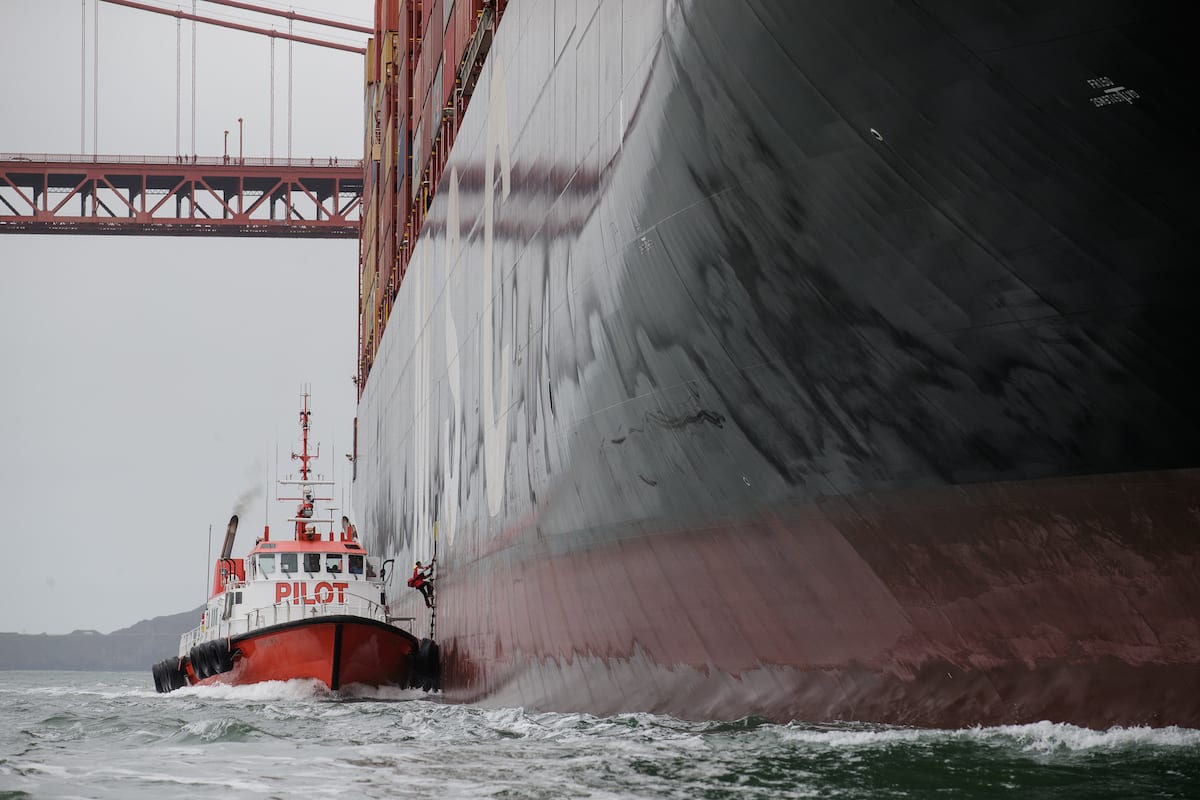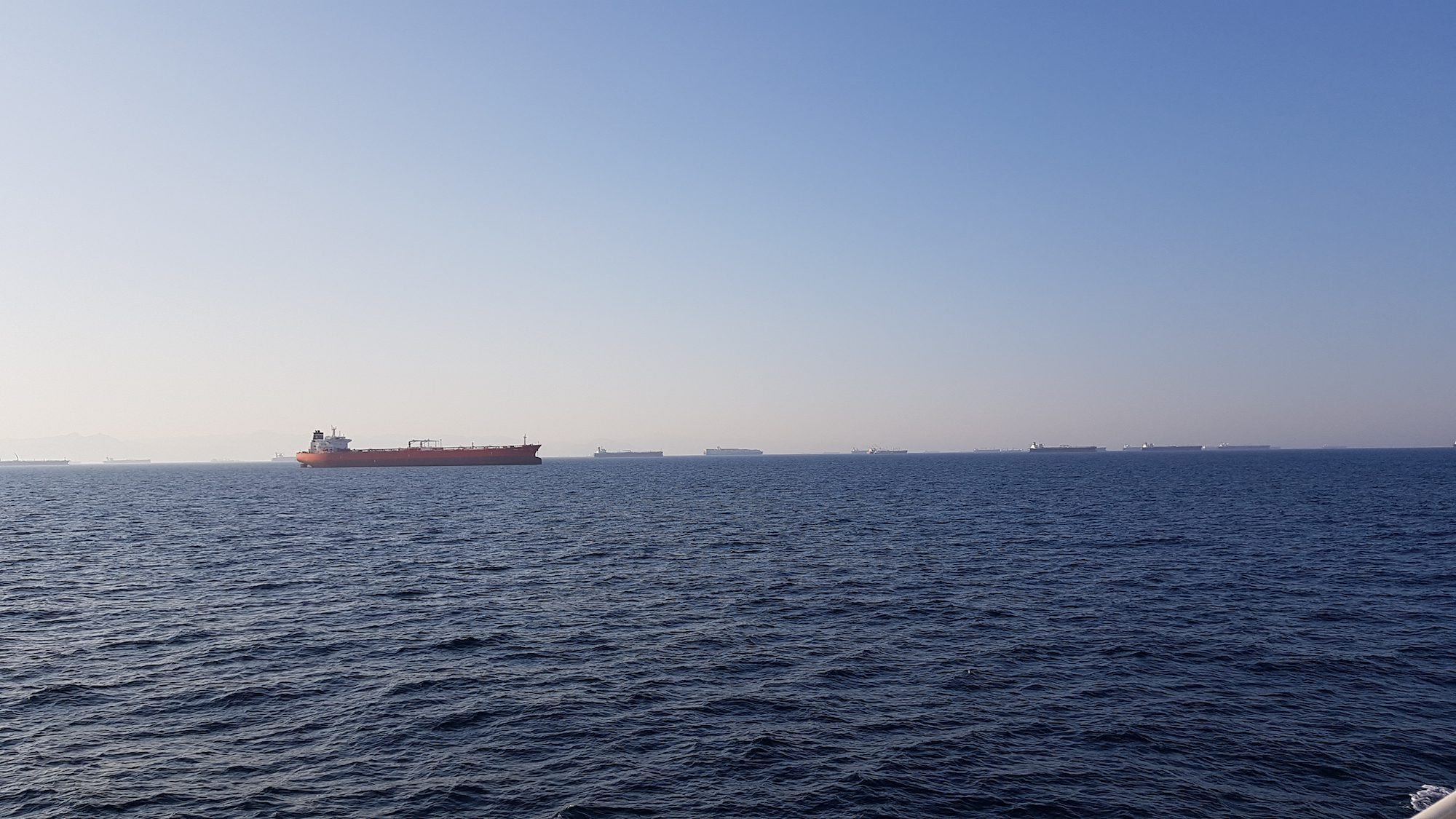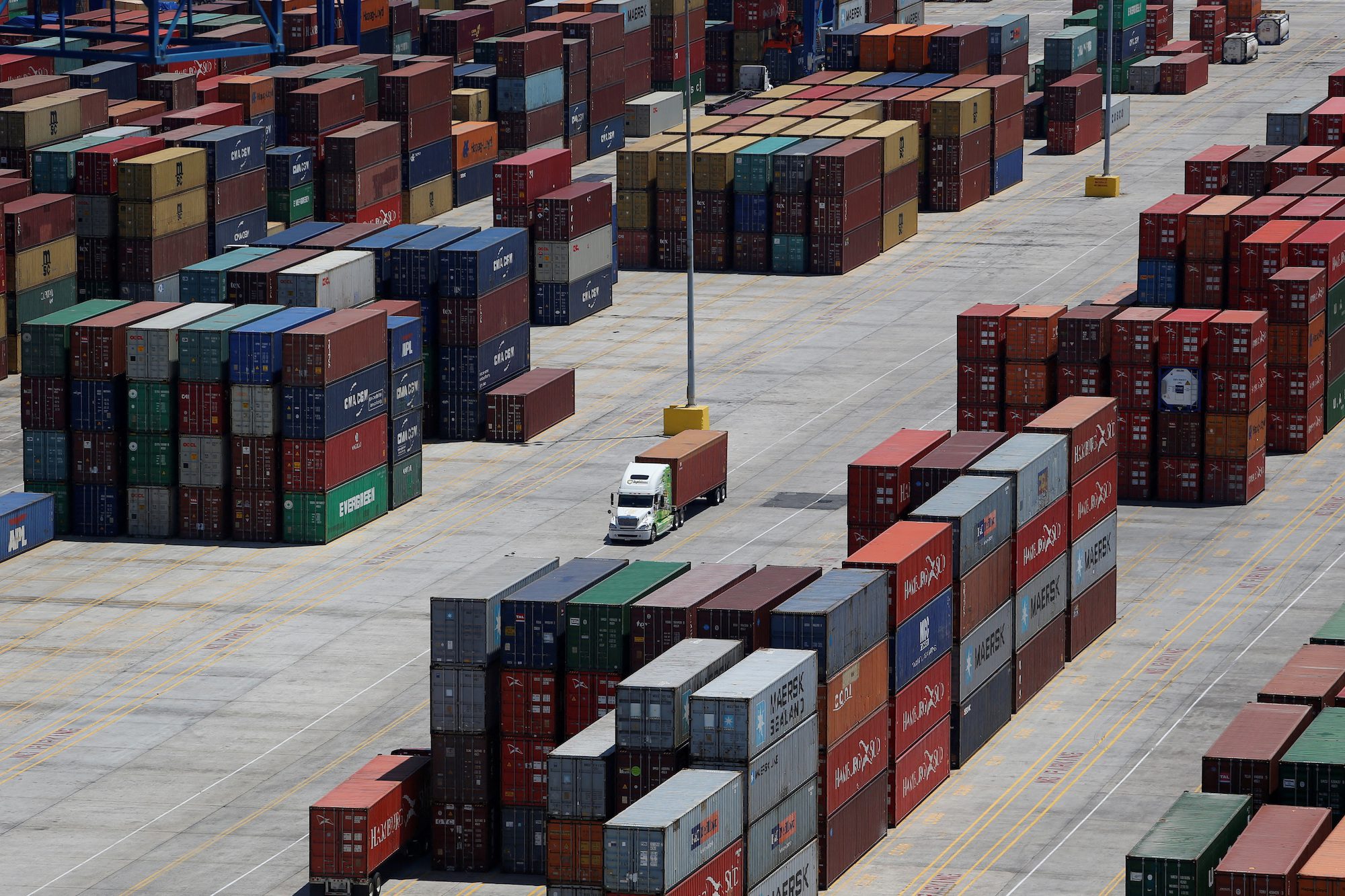By Captain George Livingstone – I am nearing the end of a forty-year career at sea which started as a junior officer on unlimited tonnage ships followed by several years of harbor tugboat work; a shot at being an owner/operator of tugs, a decade and a half of ocean towing and thirteen years as a ship pilot. I have been from North to South America, through the Panama Canal and across the Pacific, South China, Indian and Arabian Seas and many places in-between.
Reverence
Any mariner who has been at sea for decades will have seen what others may consider wonders. Dolphins as far as the eye can see, greeting and guiding the bypassing ship. Hundreds of thousands of sea birds taking up every spare inch of space on an Island barely 5 miles long. Storms that made the ship want to stop and rest. Well, stop she might, but rest? No. Just teeth clenching, bone-jarring reverence for the new day. Failure, danger, disaster and even mortality lingering on the fringes of one’s thoughts.
Continual improvement
One cannot successfully traverse this profession without believing in the idea of continual improvement. Being the best you can be is not some marketing gimmick. Given the sometimes-overwhelming challenges faced, a mariner must always be looking to learn and improve.
This is especially true of ship pilots as our primary responsibility is to safeguard against accidents and calamity. Not just for the vessel but for the lands and waterways we serve on and around. If the argument is made that it is not a pilot’s primary responsibility to safeguard against accident and calamity, then what is the primary responsibility? To make the argument that the pilot is not there to prevent against calamity is making the argument against need for the pilots. Pilots are the last measure of safety for harbor transportations systems. Harbor marine transportation systems depend on that fact. The job is so critical that it is greater than self-interest and embraces The Public Trust. Given that, there seems only one logical path forward, strive to improve for all concerned.
The time has come to talk of many things
Of shoes and ships and sealing wax, of cabbages and kings and why the sea is boiling hot. We live in extraordinary times where it may appear that accountability no longer matters, but it does matter. Dear gCaptain reader, down is not up and wrong is not right, Alice In Wonderland was a work of fiction. All of us, including pilots, are responsible to the greater good and that greater good is real and must be upheld.
The morning of November 7, 2007, found me at the pilot station awaiting assignment with a senior pilot. That morning the Cosco Busan hit the Oakland Bay Bridge causing damage to both the ship and the bridge as well as spilling a tremendous amount of bunker fuel into the bay. I was standing in the galley at the office as the Busan’s pilot walked by following the accident. It was the beginning of a very trying time for my organization. A number of changes were made in local regulations to reduce the risk of a repeat accident. The rest is history and anyone involved will never forget.
Approximately five years later, I was having lunch with a fellow pilot, when the news came on saying a tanker, the Overseas Reymar, had hit the Bay Bridge. Although no oil was spilled and no major damage occurred to the bridge or the ship, the public reaction was severe. Almost as severe as the public reaction to Cosco Busan incident. The organization and pilot system went through another complete self-examination and audit of operations and training.
Expectations and lamentations
The expectations of the public and the greater maritime partners were such that regardless of lack of oil in the water and lack of any significant damage, it was simply not acceptable. It should never have happened. That sentiment was not unreasonable and has likely morphed in the last decade to other marine transportation systems around the country and the globe. If one is tasked with a job that involves Public Safety then (regardless of good intent) failing that, the issue must be conceded and consequences accepted.
One thing seems certain in the 21st Century, nothing remains the same. Moving forward, it would seem high-profile marine accidents, regardless of severity, will ultimately test the credibility of local marine transportation systems. The goal must be that no marine accident ever jeopardize the greater good and no individual is more important than the whole, too much is at stake. The credibility of marine transportation systems must be upheld by action, against any negligence, however well-intended. It is the only way forward if we are to hold the trust of the greater communities we serve.
The faster the world changes, the more important responsibility, accountability, transparency and improvement become.
The difference between the almost right word and the right word is a really large matter – it’s the difference between the lightning bug and the lightning Mark Twain
-To more arrivals than departures

 Join The Club
Join The Club











